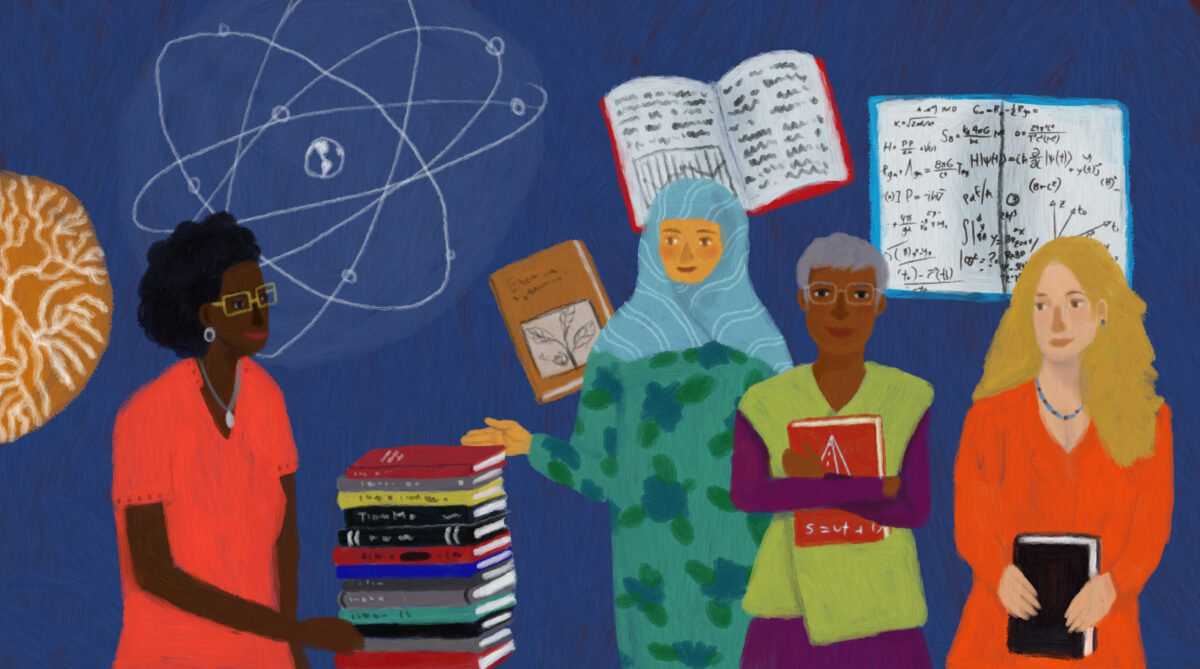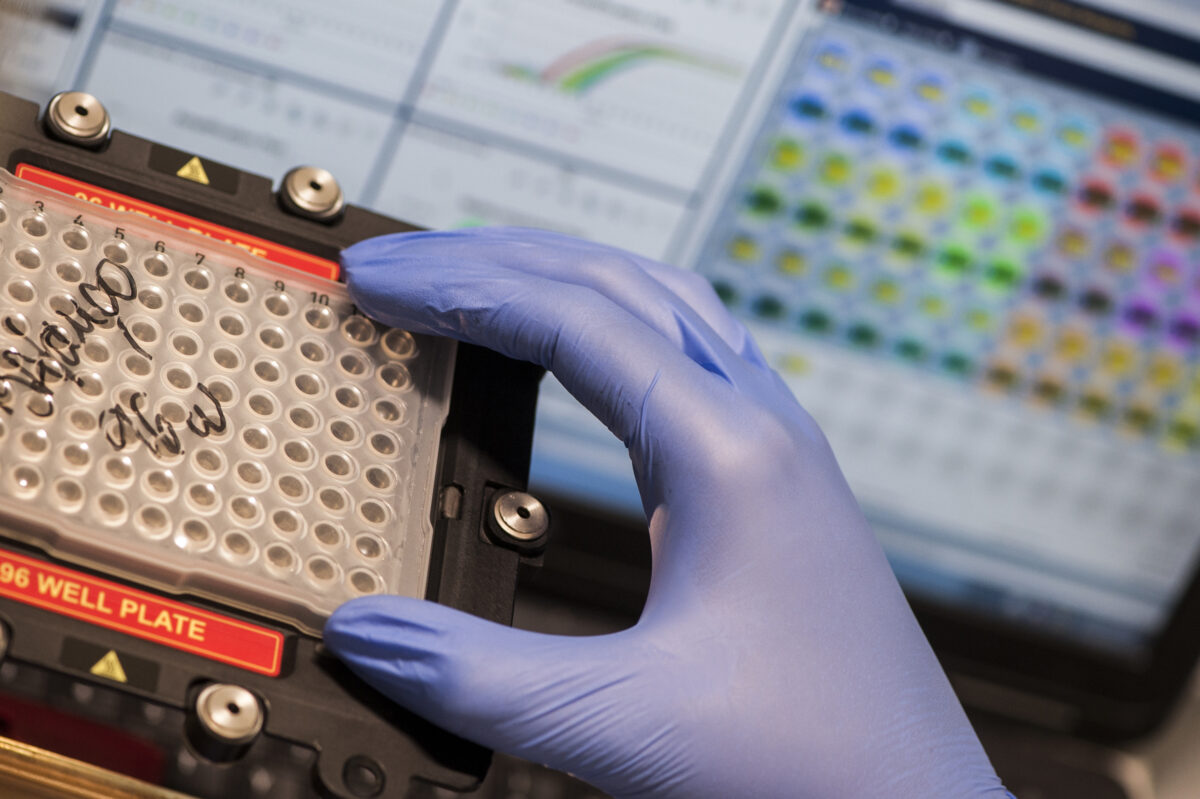 #Careers
#Careers
How to prepare for digital health
Medical researchers talk about the skills needed to work with artificial intelligence
 Illustration: La Minna/Estúdio Voador
Illustration: La Minna/Estúdio Voador
Back in 2016, Alexandre Chiavegatto Filho, a professor at the School of Public Health of the University of São Paulo (USP), decided to apply a new technique to a problem he had been working on. “I was trying to predict the life expectancy of the inhabitants of each city in Brazil based on income, education, and other data,” he says. The researcher had already conducted various analyses using traditional statistical methods, but he was never happy with the results. “I decided to apply an algorithm that was considered state-of-the-art at the time, and it was like a new world opened up to me.”
After his epiphany, Chiavegatto Filho made the decision to redirect all the research he was carrying out at the time. “I showed the findings to my master’s and PhD students and gave them some texts on artificial intelligence to read. About a month later we met again. They were impressed and told me, ‘Professor, this really changes everything.’ And so we all went headlong into this new area,” he recalls.
Now director of the Laboratory for Big Data and Predictive Analysis in Health, established at USP’s School of Public Health in 2017, Chiavegatto Filho is part of a growing group of professionals who have seen the promise in digital health and shifted their careers into the new field, which has the potential to greatly transform medical practice.
“Artificial intelligence (AI) is going to be the biggest revolution in the history of medicine. All health system processes, from management to clinical practice, will be profoundly transformed by the use of AI algorithms,” Chiavegatto Filho says.
According to the professor, despite the great strides that have already been made, the movement is only just getting started. When it comes to clinical care itself, especially patient diagnosis and prognosis, AI is still an experimental field.
“Artificial intelligence, when applied to healthcare, can have major consequences. These are literally life and death decisions. When we want to put these algorithms into practice, we have to be absolutely sure they are making the best possible decision,” emphasizes Chiavegatto Filho, from USP.
The situation is completely different in hospital management, where AI is almost routinely used to improve bed management efficiency in Intensive Care Units (ICUs) and operating rooms, to optimize patient queues, and in other internal hospital processes.
“Artificial intelligence is fundamental to Einstein’s operations. Without it, many of the things we do today would be impossible,” says Edson Amaro Jr., a neuroradiologist and head of Data Science and Big Data Analytics at Hospital Israelita Albert Einstein. Founded in 2016, the data science department now has 153 members and roughly 80 ongoing projects being carried out in partnership with federal, state, and municipal governments, in addition to other institutions.
Big data and AI are two sides of the same coin. “On the one hand, big data would not exist without AI, while on the other, AI requires a large, organized volume of data, which is provided by big data,” says Amaro Jr.
The center set up at Einstein aims to systematize information from a diverse range of sources for specific health purposes. “It’s a way of organizing medical knowledge and making it accessible to AI algorithms in a practical way. There’s no point having a lot of data if you can’t analyze it,” says the neuroradiologist.
Skills and requirements
Conducting research in fields at the interface between healthcare and technology, such as AI and big data, requires a number of specific skills. “I often say that to work with data science you need to know three things: programming, statistics, and specific knowledge of the area in which you want to apply the technology. Anyone trained in health and medicine already has the third element covered,” says Chiavegatto Filho.
The good news for those who want to learn about the other two is that the information is available online. There are many courses on statistics and programming available on the internet, some paid and others free, such as a series of classes on AI in health produced by Chiavegatto Filho during the pandemic and available on YouTube.
Another option highlighted by Amaro Jr. is to study a graduate course in information technology applied to medicine, since to date there are no medical residencies on the subject in Brazil. One of the requirements, therefore, is that professionals looking to work and do research in this new field need to go beyond their original training.
“You have to be prepared to be part doctor, part data scientist, part engineer, and part mathematician,” says Amaro Jr., from Einstein Hospital.

The two researchers exemplify this fact. Chiavegatto Filho studied economics before moving into data science applied to health. “I’ve always really enjoyed quantifying and ranking things,” he says. “I started with economics, which in a way seeks to quantify the social and economic functioning of the world. Gradually, however, it became clear to me that the area with the greatest potential for using data to transform decisions was healthcare, since it not only collects the most data, but also deals with highly complex issues.”
Before becoming a physician, Amaro Jr. thought about studying computer science. “I passed the entrance exam for both computer science and medicine, but because the college where I had applied for the former was on strike, I decided to study medicine at USP. And I enjoyed it.” After graduating, Amaro Jr. started working with images of the human brain, a field in which he completed his master’s and PhD. “I’ve always taken the middle road, with medicine and biology as my areas of application, and computing, mathematics, and statistics as the methods.”
Another important requirement for working on a topic that combines knowledge from different fields is the ability to work as part of a team, stresses Osvaldo Novais de Oliveira Júnior, director of USP’s Physics Institute in São Carlos.
“It isn’t possible to learn everything, so professionals need to know how to coordinate with technology and AI experts in an interdisciplinary environment,” says Oliveira Júnior, who collaborates on research involving health and AI.
In-depth knowledge of all of these different topics is not always necessary. Oliveira Júnior uses himself as an example. “I’m not a programmer. I know very little about computing. But I understand how these things work, I know what the limitations and possibilities are, so I’m able to talk to the experts.”
Human-centered training
With the advances in AI and its increasing incorporation into clinical practice, together with other technologies, the decisions made by different physicians are becoming more and more similar. The USP physics professor points out that given this situation, it is becoming increasingly important to train health professionals in a human-centered approach.
“In time, AI systems will inevitably be able to make more accurate diagnoses than doctors,” says Oliveira Júnior. “The professionals who stand out in medicine will thus be those who have the ability to treat the patient sensitively as a human, with more personal interactions, understanding the psychology of the patient and their family members and offering them guidance.”
“It is actually very ironic,” says Chiavegatto Filho. “People seem to believe that the robots are coming, that medicine is going to become automated, but the opposite is going to happen. What we’re going to see is the humanization of medicine.”
The possibilities for research and professional activity at the cutting edge of medicine are not limited to universities and large hospitals. Startups focused on innovation in healthcare have been emerging nationwide. One of the most successful examples is Imunotera, founded in São Paulo in 2016. The company has developed a therapeutic vaccine platform capable of combating several types of cancer. Its first product was designed to help treat patients with pre-cancerous lesions and cancer related to the human papilloma virus (HPV).
“Therapeutic vaccines represent an innovative treatment approach that differs from the traditional concept of vaccines, teaching the patient’s immune system to fight something that already exists, rather than to protect them from something that is yet to happen,” explains Luana Raposo, CEO and cofounder of Imunotera.
Thus, the technology is not only able to treat a disease but also to prevent its recurrence, which is a major advantage in cancer treatment.
Raposo had the idea for the company when she was studying her PhD at USP’s Institute of Biomedical Sciences. “We discovered a new way of teaching the immune system, which in principle generates better results than those achieved by other researchers around the world.” She developed a taste for applied research that combined perfectly with her entrepreneurial spirit.
The vaccine developed by Imunotera showed highly promising results in animal trials. “We achieved 100% regression in mice, and with advanced-stage tumors we were able to associate our therapeutic vaccine with chemotherapy, increasing the effectiveness of the treatment.” The next step was proof of concept in humans, which was achieved in 2021. Now, the startup is looking for investment so that it can begin clinical trials, the final phase of a research process that has spanned more than a decade.
The company’s employees are from a diverse range of backgrounds. “In the early stages of product development, we have biotechnologists, bioinformatics experts, and immunologists. The employees involved in the final stages of production are primarily epidemiologists, who have to determine the relevance of each disease, as well as people with strong market knowledge who can identify where each disease is occurring and who the target audience is,” says the Imunotera CEO.
Raposo, who started in the former group, is now more engaged in the latter. In 2020, she completed an MBA in Health Innovation Management. “I joke that I had to take off my lab coat and put on a suit.” According to the researcher, entrepreneurs in science need to be capable of moving between these two worlds.
“If a potential entrepreneur is carrying out a research project, it is fundamental that they understand the market well and know the potential customers of their product,” she says. She therefore recommends that researchers in this situation try to participate in entrepreneurship courses and similar subjects available wherever they study. If a startup has already been created, Raposo suggests making use of accelerator and incubator programs.
Imunotera is currently part of the eretz.bio incubator, an Einstein initiative for biotechnology startups.
*
This article may be republished online under the CC-BY-NC-ND Creative Commons license.
The text must not be edited and the author(s) and source (Science Arena) must be credited.


